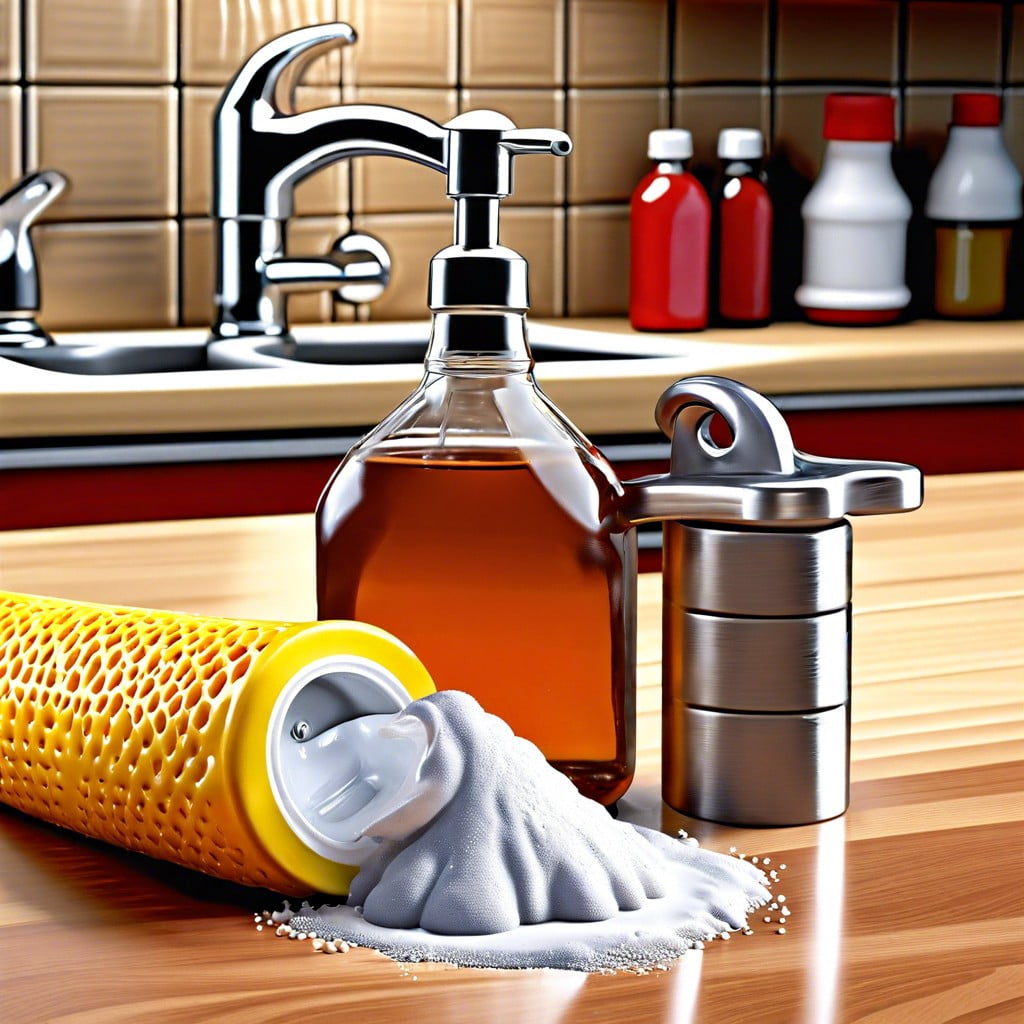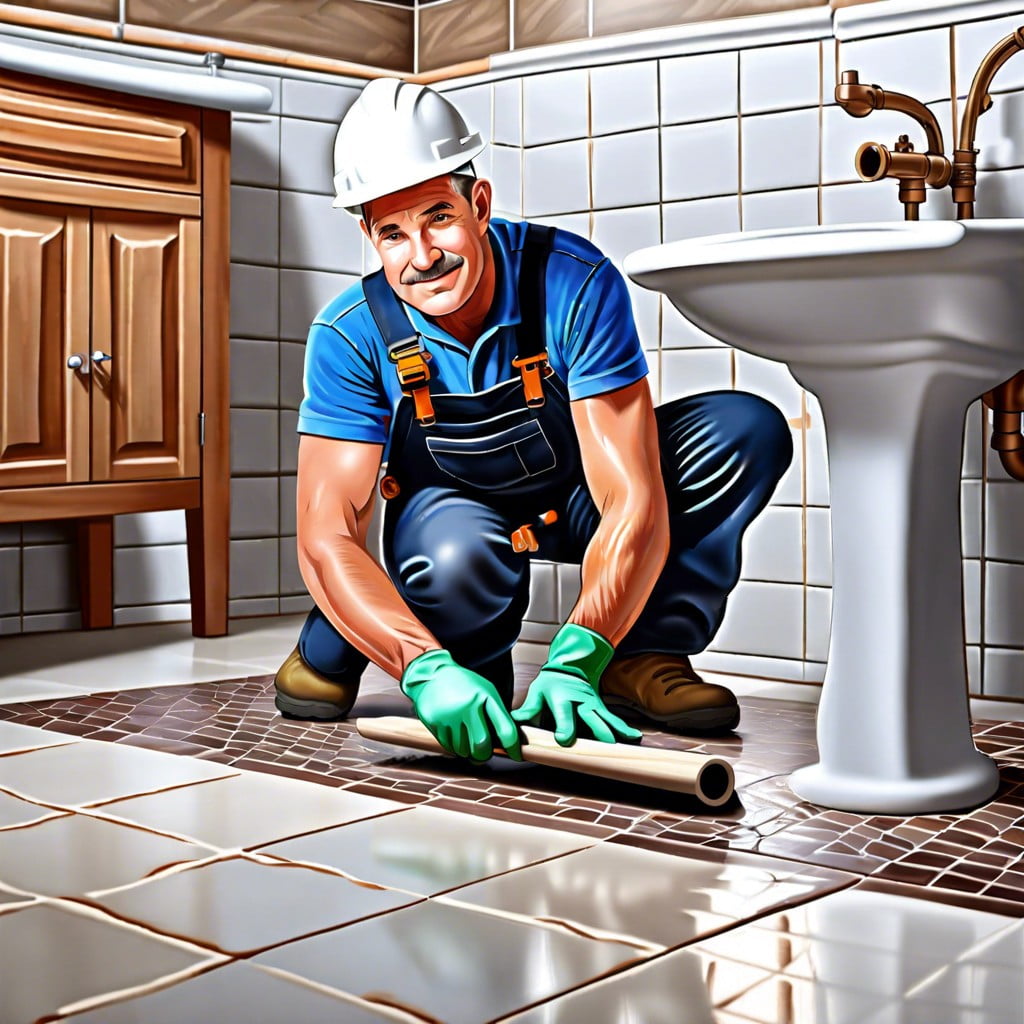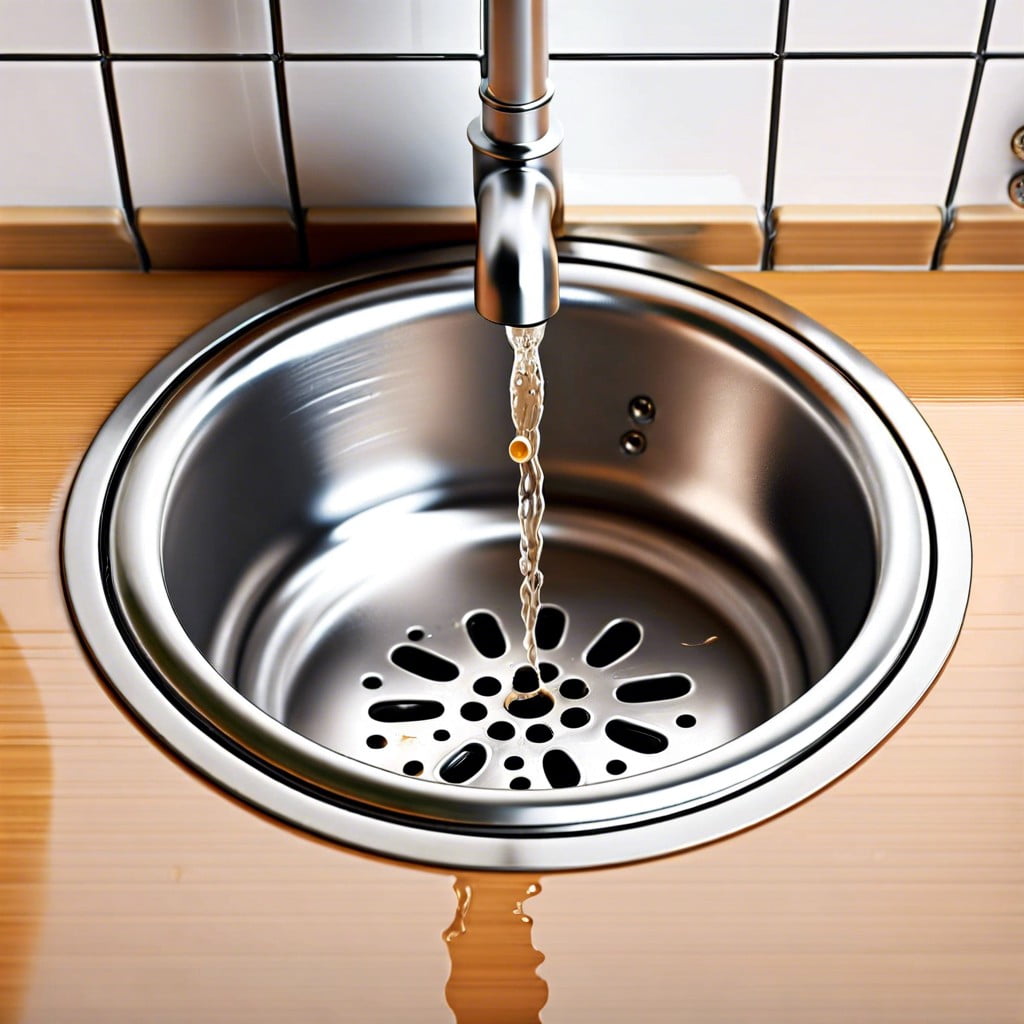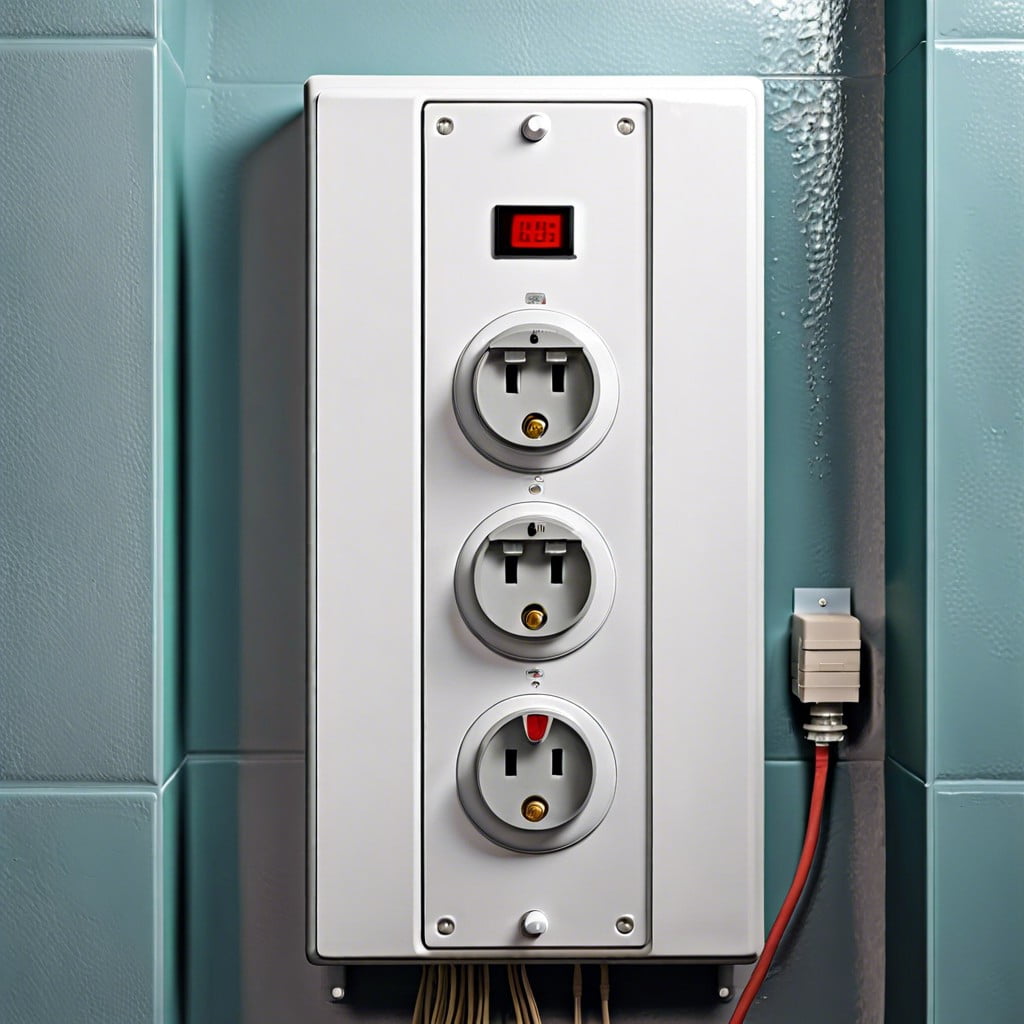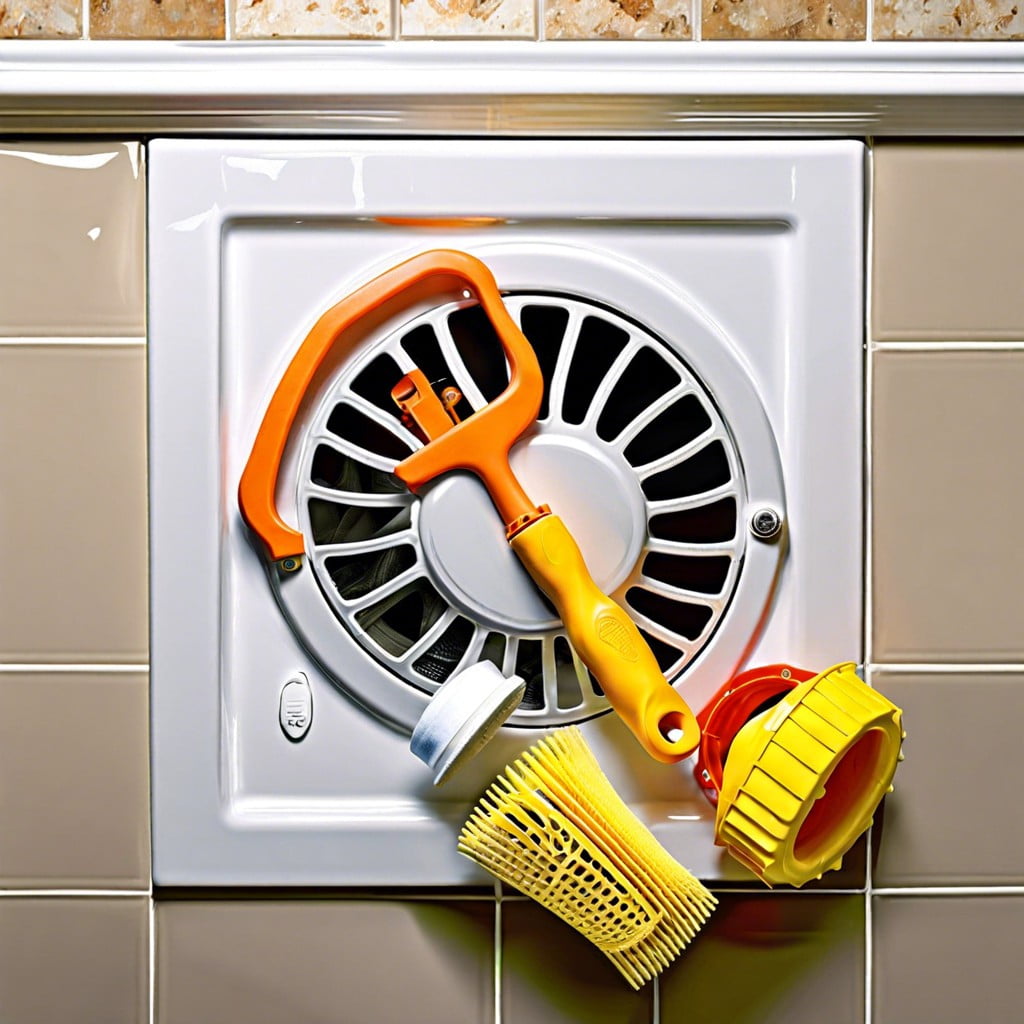Last updated on
Discover practical steps to identify and eliminate that mysterious odor lurking in your bathroom.
Key takeaways:
- Mould and mildew love moisture, so fix leaks and use vinegar or bleach to clean.
- Low water levels in toilet trap can cause odor, keep trap filled.
- Sewer gas can enter through dry P-trap or broken toilet seals, check and fix.
- Dirty drains can cause odors, use toothbrush or drain cleaning solutions.
- Poor bathroom ventilation leads to mold and bacteria growth, clean exhaust fan and improve airflow.
Mould and Mildew
These common culprits thrive in damp, dark corners, turning your bathroom into their personal smelly playground. Here are a few crucial points to keep in mind:
- They love moisture: Mould and mildew need water to grow, so any leaks or puddles are like a spa day for them.
- Lurking spots: Look out for them on shower curtains, under sinks, and in the grout between tiles.
- Health hazards: Aside from the smell, mould and mildew can cause respiratory issues and allergies. They’re not just annoying; they’re bad for you.
- Simple fixes: Scrub with vinegar or bleach, and always keep a bathroom fan running during and after showers.
- Get some air in there: Good ventilation keeps these pesky fungi from settling down. Open windows or use a dehumidifier.
Low Water Levels in the Toilet Trap
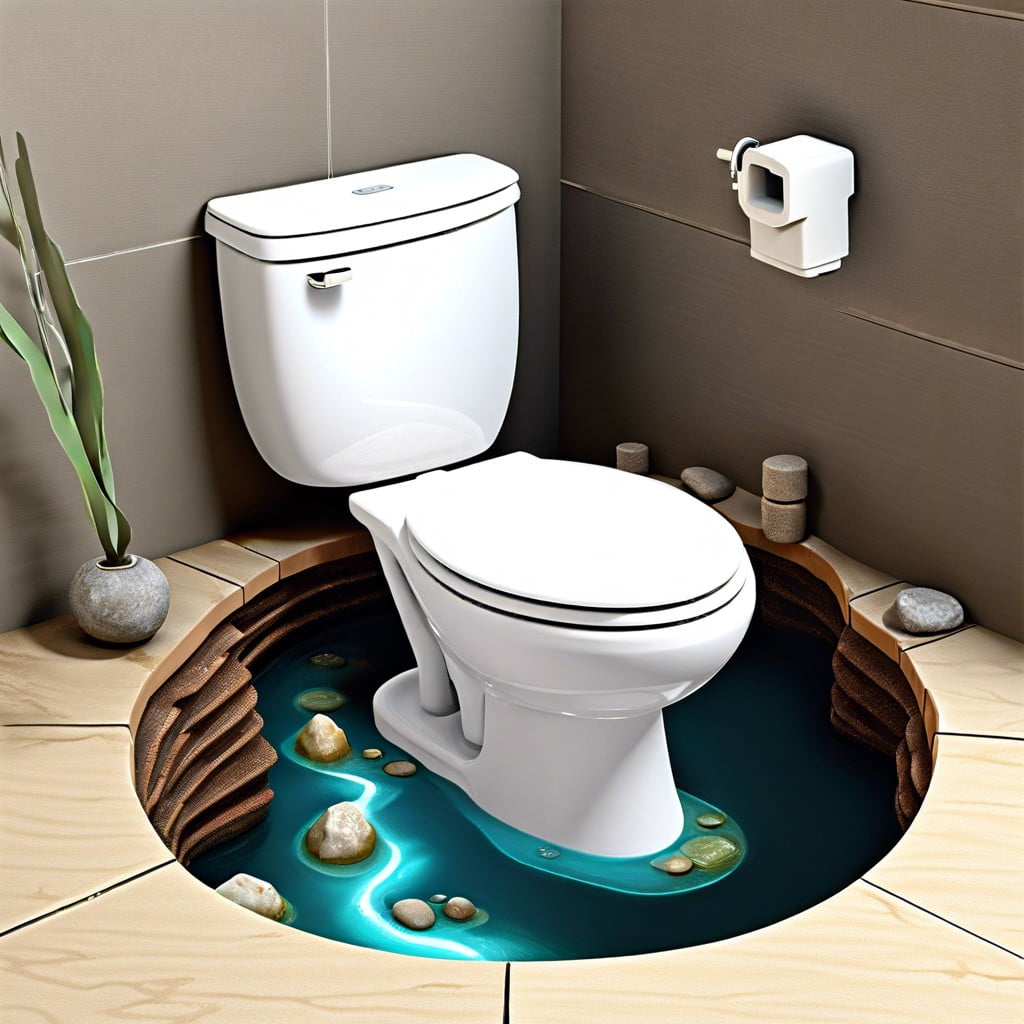
When water levels in the toilet trap are low, an unpleasant odor can waft through your bathroom. This happens because the water in the trap acts as a barrier, preventing sewer gases from entering your home.
Here’s how it might happen:
Evaporation: If a toilet has been unused for a while, the water in the trap can evaporate, allowing smells to sneak in.
Leakage: A small, undetected leak can reduce the water level over time without you noticing.
Flushing issues: Sometimes, a weak flush might not fully refill the trap with water.
Remember to check if your toilet bowl is adequately filled and refill it if necessary. You’re essentially telling the odors, “Not today, pal.”
Sewer Gas
Ah, sewer gas, the unwanted guest that loves to crash your bathroom party uninvited. This stealthy stranger usually sneaks in due to plumbing issues. It’s like your bathroom’s naughty little secret, whispering unpleasant aromas into the air.
First off, check the P-trap. That’s the U-shaped pipe under your sink or toilet designed to hold water and block sewer gases. If it’s dry, sewer gases will waltz right in. Give it a splash of water to kick them out.
Next, inspect your toilet seals. A broken wax ring can allow these nefarious gases to seep into your pristine bathroom. If you’ve got a wobbly throne, it might be time to call in a plumber and re-establish the royal seals.
Lastly, look out for cracked pipes. These sneaky culprits can let sewer gas infiltrate like a spy under the cover of night. If you suspect a leak, it’s best to summon a professional plumber. No one wants to deal with a messy pipe problem.
Keep these points in mind and you’ll hopefully evict that sewer gas before it even thinks about settling in.
Dirty Drains
It’s no secret that bathroom drains are havens for all sorts of grime. Think of it as a party where soap scum, hair, and toothpaste gunk all get together to clog up the pipes. Over time, this gunky gathering can lead to some pretty revolting odors.
First, consider what might be lurking just out of sight. Hair loves to wrap itself around drain components like an overzealous clingy friend. Combine that with soap and you’ve got a recipe for a stinky situation.
Second, toothpaste residue can solidify and trap additional debris. It’s like an adhesive, bonding yucky stuff together.
Third, let’s not forget about the bacteria. They thrive in wet, nasty conditions and produce that unmistakably unpleasant smell. These microscopic miscreants are basically throwing a to-the-death dance-off down your drain.
Got any old toothbrushes lying around? They make excellent drain-scrubbers. Or consider drain cleaning solutions—just make sure they’re safe for your plumbing.
Finally, prevention is key. Use drain covers to catch hair, and run hot water down your drains regularly to help break up any potential build-up.
Voilà, drain dilemmas downgraded!
Improper Bathroom Ventilation
Poor bathroom ventilation can be a smelly villain lurking in your home’s most private space. A lack of airflow means moisture doesn’t get whisked away, creating a steamy, swampy environment perfect for those stinky mold and bacteria parties.
First, check if your exhaust fan is working. If it sounds like a dying robot, it might be underperforming. Sometimes, simply cleaning it can boost its efficiency.
Next, consider how often you’re using the fan. It should run during and after showers but many forget this crucial step. Set a timer for 15-20 minutes post-shower to keep things fresh.
Finally, look at your bathroom’s general airflow. Can you crack a window? Add a small oscillating fan? Even slightly improving air circulation can wave goodbye to those stubborn smells.
Easy Fixes for That Sewage Smell
Alright, let’s tackle that sewage smell head-on with a few easy fixes that’ll make your bathroom a breath of fresh air (literally).
First, pour boiling water down the drain. This can help dislodge any gunk that’s causing the odor. Follow it up with a mixture of baking soda and vinegar. The fizz reaction works wonders on stubborn grime.
Check the water levels in the toilet. Sometimes the trap doesn’t have enough water in it, letting sewer gas sneak up. Simply flushing a few times can do the trick.
Ventilation is key. Open a window or turn on the exhaust fan to let fresh air circulate. If your bathroom lacks windows, consider investing in a high-quality exhaust fan.
Lastly, keep the drains clean. Regularly use a commercial drain cleaner or a mixture of baking soda and vinegar to keep things fresh and odor-free. You’ll be surprised how much difference this simple habit can make.
Remember, a little maintenance now saves you from a lot of headaches (and nose-holds) later!
Hire a Professional
When all else fails and that peculiar odor persists, it’s time to call in the pros. Bathroom smells, especially those resembling rotten eggs or raw sewage, can indicate deeper plumbing issues that require expert attention.
Professional plumbers have tools and experience to identify and fix problems that aren’t visible. They can check your plumbing vents, inspect for hidden leaks, and address any underlying sewer line issues.
Plus, they know their way around stubborn clogs and dirty drains better than any DIY approach. They’ll handle it efficiently, saving you time and a potential headache.
And let’s be honest, who wants to spend their weekend elbow-deep in a toilet trap? Booking a professional can get your bathroom back to its pleasant, aromatic self in no time.
Recap
